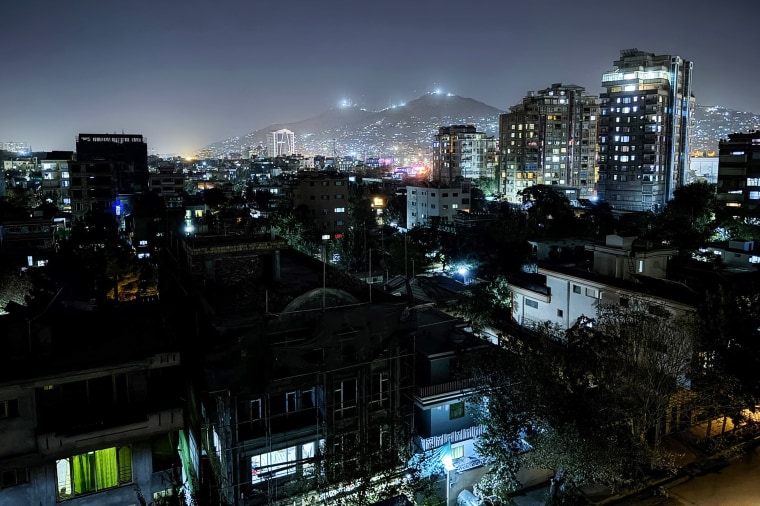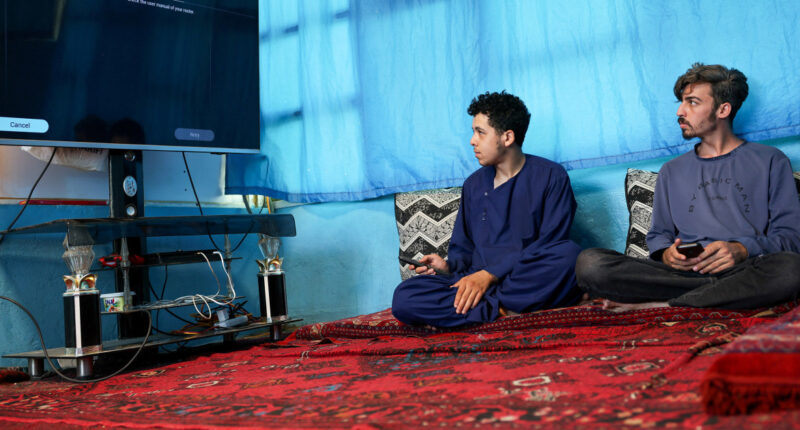Share this @internewscast.com
The Taliban has refuted claims of an enforced internet shutdown across Afghanistan, attributing the widespread connectivity issues to outdated fiber optic cables that are undergoing replacement.
On Wednesday, the Taliban addressed the public for the first time following a communication blackout that has impacted over 40 million people in the nation, affecting sectors such as banking, travel, business, and humanitarian efforts.
The spokesperson Zabihullah Mujahid was quoted on the Taliban’s Urdu-language platform, Al-Emarah, stating that rumors circulating about an internet ban are false.
Despite these assurances, a senior Taliban official in Kabul expressed confusion to NBC News, mentioning that the situation remains unclear as most people lack communication avenues.
This follows reports from last month when several provinces hinted at cutting internet access after a government directive aimed at controlling immorality, sparking concerns over new restrictions on global connectivity.
According to internet monitoring group NetBlocks, there was a near-total telecom disruption as of Monday, with the situation escalating to a complete internet blackout shortly thereafter.

The United Nations urged Taliban authorities “to immediately and fully restore nationwide Internet and telecommunications access,” in a statement Tuesday.
The shutdown has left millions of people from Afghanistan who now live outside the country distressed, with many unable to contact their loved ones. Flights out of the country have also been canceled, adding to the sense of chaos and isolation.
Indiana resident Sofia Ramyar, 33, is one of them.
Ramyar says that she hasn’t been able to contact her family, some of whom live in the capital Kabul.
“The blackout has created a deep sense of isolation and has further silenced those already struggling to be heard,” Ramyar told NBC News. “This blackout has fully cut off the country from the digital world in a way we have never seen before.”
Ramyar serves as an advisor to Afghans for Progressive Thinking (APT), a youth-led non-profit that focuses on advancing women’s rights and educational opportunities for girls. She added that the blackout has impacted her ability to serve those women, adding that her work “relies heavily” on online access and that the situation in Afghanistan continues to be “unpredictable.”
“Their safety is always a concern,” she added.
Naseer Kawoshger, 29, who left Afghanistan in 2020 and now works as a cashier at a grocery store in Chicago, said he has also been unable to speak with his family in Kabul.
“When I sent a message to my sister, my brother, there was only one tick and I saw that the message wasn’t being sent,” Kawoshger said. “I don’t know what happened to my country, what happened to my family.”
Aid officials have warned the blackout was hampering their operations in the country, which has been battered by a series of economic and humanitarian crises since the Taliban swept back to power in 2021 as the U.S. withdrew.
The hardline Islamist regime has faced global criticism for its treatment of women, but has recently sought better ties with Washington.
“Reliable communications are essential for our ability to operate, to deliver life-saving assistance, and to coordinate with partners,” Save the Children said in a statement Wednesday.









